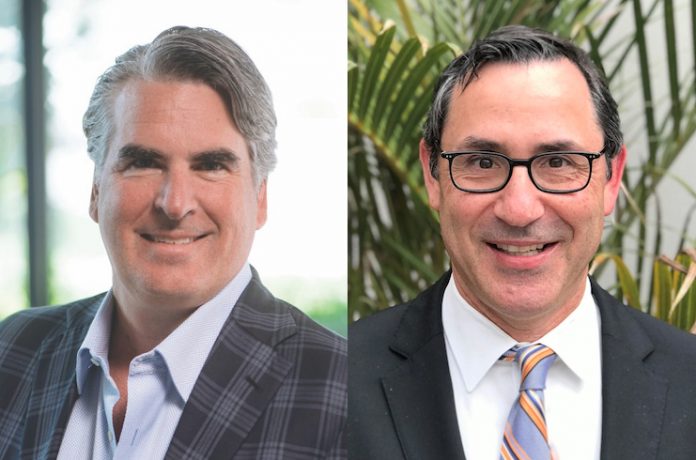During a recent chat with LODGING at the Americas Lodging Investment Summit (ALIS) in Los Angeles, top executives described the strategy behind the acquisition of Marshall Hotels and Resorts by TPG Hotels, Resorts and Marinas. There, Chief Investment Officer Robert Leven and the combined company’s President and CEO Mike Marshall discussed how melding the resources of these two companies positions them to successfully navigate the future, even while times continue to be uncertain for the hotel industry.
When and why did this acquisition take place?
Robert Leven: While the transaction closed right at the end of 2021, TPG and Marshall had been in discussions even before the pandemic. By the time we began emerging from the “hair on fire” environment of what seemed to be the worst of the pandemic, we had gained some good clarity on both sides in terms of what we wanted to do during the next 10 years. That’s when the conversation just heated up and we just found a really good fit.
Mike Marshall: It is not uncommon for consolidation to occur in many industries during periods of economic upheaval. In this case, we really saw an opportunity to be able to build something better by melding together our hotels, clients, and employees. It is our plan to hit the ground running and take on some very cool projects once we pivot out of this economic malaise that we’ve been in for the industry.
What are your highest priorities at this time?
Leven: Over the next six months or so, we’ll be focused on working out the details to determine just how to bring the two companies together to play off one another and maximize their resources, to operate ultimately as one integrated company. During this time, we’ll also continue to run our collective businesses and to consider other opportunities that we are now in a better competitive position to pursue—whether they are acquisition opportunities or additional one-off management contracts
Marshall: Bringing together TPG’s resources with ours, which combines years of third-party management expertise and a large number of young people ready to meet many of the changes—especially pertaining to technology—that have occurred in the industry, poises us to become one of the best third-party management companies in the industry.
Will the TPG portfolio continue to favor leisure-oriented, independent properties?
Leven: It’s important to understand that this transaction intends to keep the two parts of our business—i.e., the third-party management company, and the owner and investment group designed to raise capital for hotel investments—relatively independent of one another. That said, on the investment side, we are continuing to invest in independent, leisure-oriented, small properties, such as the three hotels we just bought in the Florida Keys, which will nicely dovetail with the management side of the company’s large portfolio of leisure-oriented branded and independent hotels.
Marshall: Having iconic unique properties such as these should make other such properties more comfortable with our management company, which already has years of experience in the leisure market with both independent and branded properties.
How are you looking to grow?
Leven: The answer to this question is not exactly the same for both sides of the company. We have the resources and ability to work around the entire country on new management assignments within our existing bandwidth and geographic footprint as well as those already in our third-party pipeline; and I’m sure we’ll buy some additional hotels that will be managed by the management company. Then, as we get through the first six months of the year, we may begin to look more actively at some additional corporate acquisitions.
Marshall: As for the ownership side, we now have the ability to be both more flexible and more selective. We want to make sure that the ownership groups we choose to work with are well-capitalized, that we go into hotels with the ability to succeed. However, if a hotel is in a good location and market, we might be able to bring equity to the table when the ownership doesn’t have the money to make needed improvements.
We’re never going to be a cookie-cutter company. We have a total of 125 diverse hotels. They include both branded and independent properties, some aimed at business and others at the leisure market. We can go into some really cool places.
What are your hopes and expectations for the future—say, the end of 2022—during these uncertain times?
Leven: I would like to think that we’ll start to see a real recovery in corporate travel, starting with corporate transient and small group business; conventions will take longer because of the lead time needed. The leisure piece is already there—even shoulder days of the week are filling up. But for this year, everyone would be more optimistic if we could see some light on the corporate travel side.
Marshall: In the short term, I think hotels in drive-to markets in states that are “open” will continue to perform best. This was the case in Miami, which, even without international travel, had a better year in 2020 than in 2019. As I see it, we need to be unified as a nation, and I’m not sure that’s going to happen anytime soon.
For the longer term, I believe both domestic and international travel depend upon the ability of the airlines to gear up to deliver travelers to more distant destinations for cruises and tourism as well as the convention and other corporate business we believe will ultimately return.













